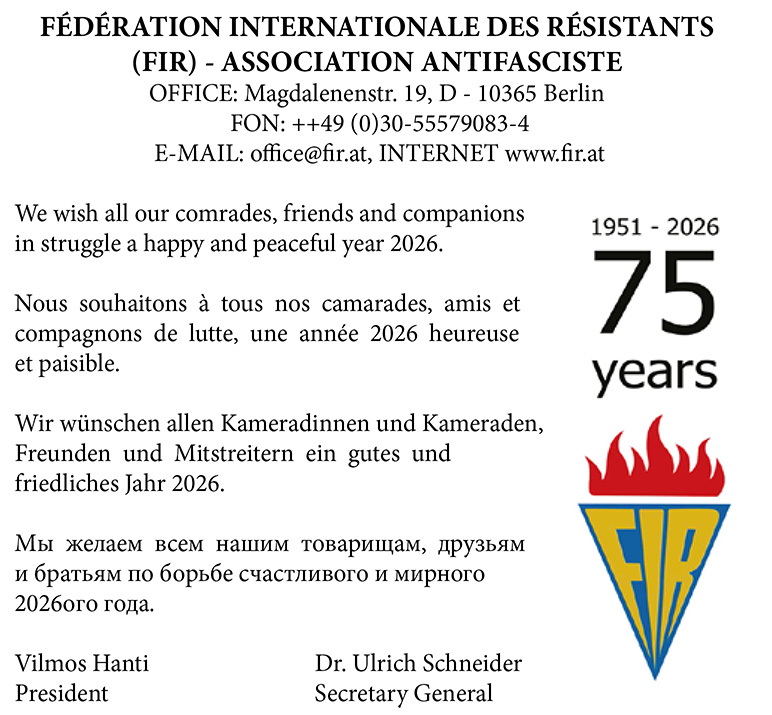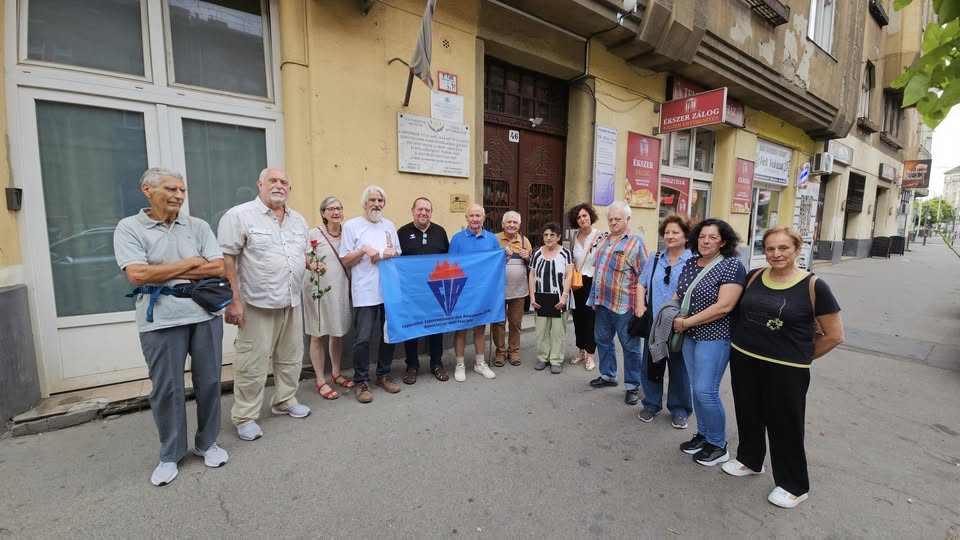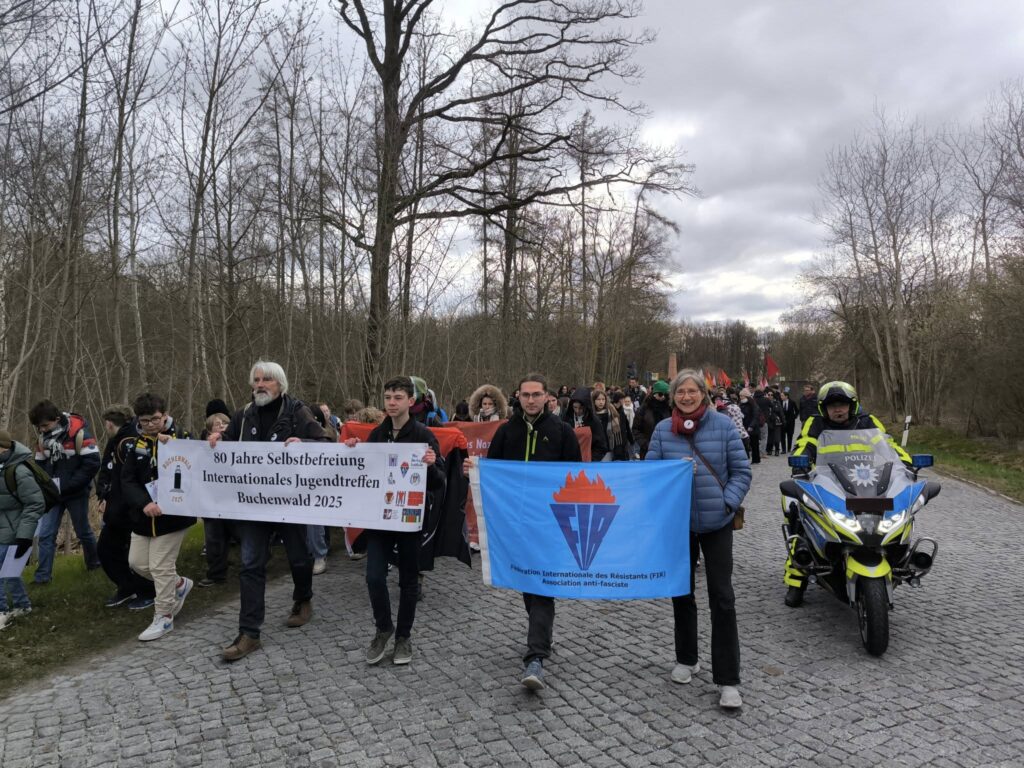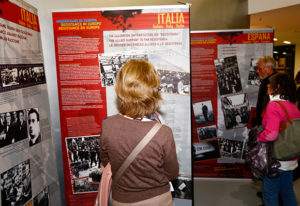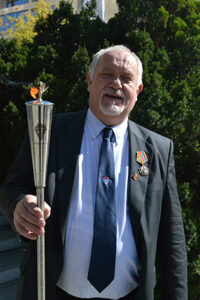Die Fédération Internationale des Resistants (FIR) – Association Antifasciste, die Dachorganisation von Partisanen, Veteranen des antifaschistischen Widerstands, Deportierter, Familienangehörigen und und heutiger Antifaschisten verurteilt gemeinsam mit dem Verband der ungarischen Widerstandskämpfer und Antifaschisten (MEASZ), der deutschen Vereinigung der Verfolgten des Naziregimes – Bund der Antifaschistinnen und Antifaschisten (VVN-BdA), und dem österreichischen Bundesverband österreichischer Widerstandskämpfer und Antifaschisten, Opfer des Faschismus (KZ-Verband) den Umgang der ungarischen Regierung mit dem derzeit größten jährlichen Nazi-Aufmarsch zum „Tag der Ehre“ in Ungarn und das Urteil gegen Maja T.
Am 4. Februar wurde die beklagte Person Maja T. in einem politischen Schauprozess in Budapest zu acht Jahren Haft verurteilt, weil sie vorgeblich an einem „terroristischen“ Angriff auf ungarische Neonazis beteiligt war. Aus dem Beweismaterial um die körperliche Auseinandersetzung vor zwei Jahren ergab sich weder eine direkte Beteiligung der beklagten Person, noch die Behauptung der ungarischen Justiz, dass es sich bei den Akteuren um eine kriminelle Organisation handele. Daran ändert auch nichts die Erklärung der Orbán-Regierung – im Nachvollzug der Vorgaben von Donald Trump – im vergangenen Jahr „die Antifa“ zu einer „terroristischen Organisation“ zu erklären. Wir erinnern daran, dass die beklagte Person entgegen einem deutschen Gerichtsbeschluss rechtswidrig in einer „Nacht und Nebel“-Aktion der Staatsanwaltschaft an die ungarische Justiz ausgeliefert wurde. Seitens des ungarischen Justizministeriums wird auch nach dem Urteil noch Druck auf die verurteilte Person ausgeübt, die während des Verfahrens mit einem Hungerstreik gegen unmenschliche Haftbedingungen protestiert hatte. Man sei nur bereit, sie nach Deutschland zur Haftverbüßung zu überstellen, wenn sie auf eine Revision gegen das Gerichtsurteil verzichte.
Hintergrund des Verfahrens war eine handgreifliche Auseinandersetzung gegen den seit vielen Jahren in Budapest stattfindenden Aufmarsch internationaler neofaschistischer Gruppen zum „Tag der Ehre“, der eine Rehabilitierung von SS, Wehrmacht und ungarischer Kollaborateure bedeutet. Die FIR und ihre Mitgliedsverbände haben schon mehrfach gegen diese Form von Geschichtsrevisionismus protestiert und die ungarischen Behörden aufgefordert, solche Provokationen zu unterbinden. Auch in diesem Jahr sind wieder Veranstaltungen zum „Tag der Ehre“ in Budapest geplant. Während in den vergangenen Jahren die Stadtverwaltung versucht hat, durch Verbote bzw. Auflagen das neofaschistische Treffen zu unterbinden, hat diesmal die Polizei, die unter direkter Leitung der Orbán-Regierung steht, alle antifaschistischen Proteste gegen dieses Treffen untersagt. Das betrifft selbst eine Gedenkaktion mit der Auschwitz-Überlebenden Katalin Sommer, die am Mahnmal für die ermordeten jüdischen Menschen am Donau-Ufer sprechen sollte. Neonaziaktivitäten, bei denen Akteure in historischen SS-Uniformen mit Hakenkreuzen und anderen faschistischen Symbolen zu sehen sind, wurde seitens der Polizei ausdrücklich genehmigt.
Die antifaschistischen Verbände aus Deutschland, Österreich und Ungarn, die sich seit vielen Jahren gegen die Rehabilitierung der NS-Verbände engagieren, verurteilen diese Entscheidung der ungarischen Regierung und der ihr direkt unterstellten Sicherheitskräfte, die eine Umkehrung von Opfern und Tätern bedeutet, eine Kriminalisierung der Antifaschisten und einen Freibrief für Neonazis. Deshalb wird in Berlin, Wien und anderen Städten vor ungarischen Botschaften und Konsulaten gegen das Verbot der angemeldeten Protestaktionen in Budapest demonstriert. Vor vielen Jahren lautete die Losung der FIR „Nie wieder ein SS-Europa!“ – offenbar ist der Slogan aktueller als jemals befürchtet.


